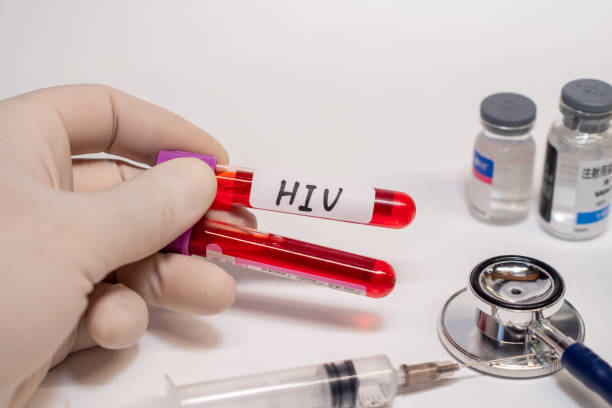VIP Travel Experiences: Top Tips and Destinations for Your Next Trip
The 7 World's Most Dangerous Roads: A Perilous Journey
12 Kitchen Color Schemes that Uplift and Inspire
How to Choose the Right Air Fryer for Your Kitchen?
What Is Spirituality? Exploring Its True Meaning
How to Meditate at Home: A Beginner's Guide
Screen-Free Parenting: Effective Ways to Limit Screen Time and Foster Healthy Habits
Understanding the Early Symptoms of HIV: How to Detect the Virus Early
HIV (Human Immunodeficiency Virus) is a viral infection that attacks the immune system, and if untreated, it can progress to AIDS (Acquired Immunodeficiency Syndrome). Detecting HIV early can help manage the virus and prevent it from spreading to others. In this article, we will discuss the early symptoms of HIV and the importance of getting tested.
HIV (Human Immunodeficiency Virus) is a viral infection that attacks the immune system, and if untreated, it can progress to AIDS (Acquired Immunodeficiency Syndrome). Detecting HIV early can help manage the virus and prevent it from spreading to others. In this article, we will discuss the early symptoms of HIV and the importance of getting tested.

What is HIV and How is it Spread?
HIV is primarily transmitted through sexual contact, but it can also be spread through contaminated needles or blood. In some cases, the virus can be passed from mother to child during pregnancy or breastfeeding. Although there is no cure for HIV, early diagnosis and treatment can help keep the virus under control.
Early Signs of HIV Infection
The symptoms of HIV can vary from person to person, but the early signs of infection are typically flu-like and can appear 2 to 4 weeks after exposure. These symptoms may be mild and are easy to confuse with other common viral infections. Common early symptoms include:
- Fever
- Headaches
- Muscle and joint pain
- Sore throat
- Swollen lymph nodes
- Rash
- Night sweats
- Fatigue
- Mouth ulcers
It’s important to note that not everyone with HIV will experience these symptoms, and some people may not show any symptoms for many years. If you suspect you’ve been exposed to HIV, it’s important to seek testing as soon as possible.
Taking Action if You Suspect HIV
If you have recently had unprotected sex or engaged in other risky behaviors, it’s important to get tested for HIV, even if you don’t have symptoms. HIV testing is the only way to confirm the presence of the virus. Early testing allows for early intervention, which is crucial in controlling the virus and reducing the risk of transmission.
Treatment Options for HIV
Currently, there is no cure for HIV, but there are effective treatments available. Antiretroviral therapy (ART) involves taking a combination of medications that work to reduce the virus's activity in the body, preventing the virus from replicating. Regular ART treatment can help individuals with HIV lead a long, healthy life.
Your doctor will work with you to create a treatment plan tailored to your needs.
Conclusion
If you suspect you may have HIV, don’t wait—get tested as soon as possible. Early detection and treatment can help manage the virus, improve your health, and prevent complications. Stay informed about your health and take the necessary steps to protect yourself and others.











